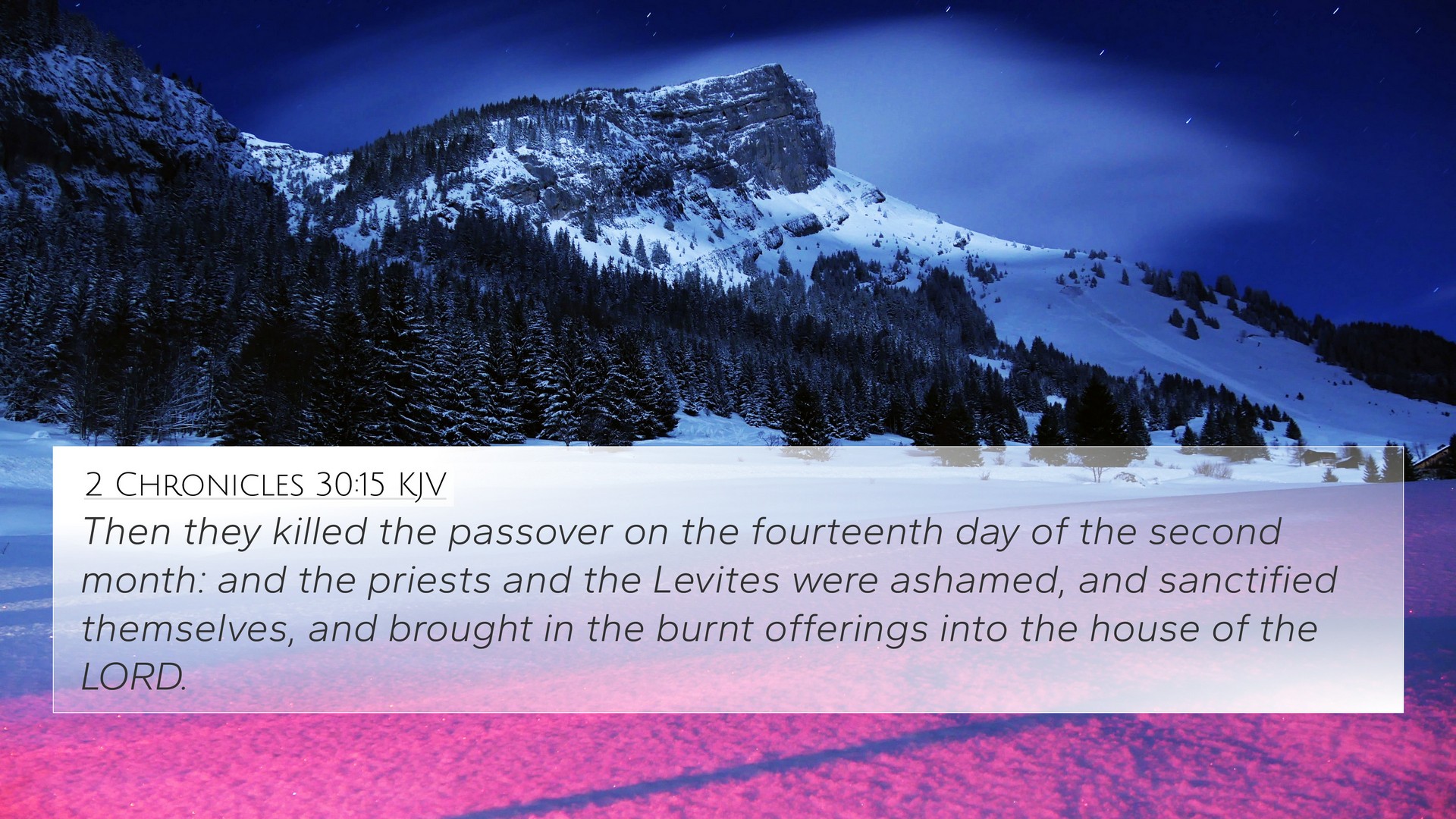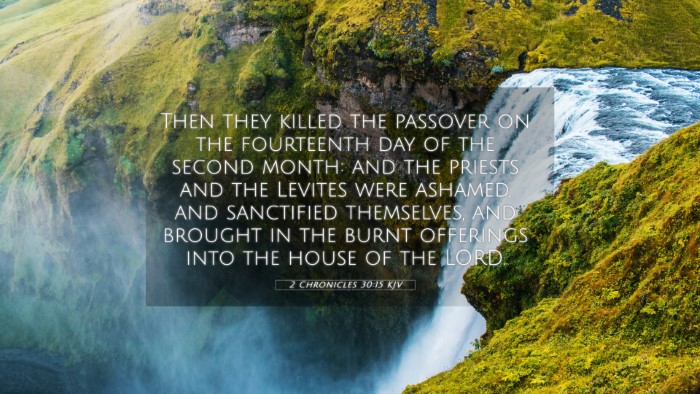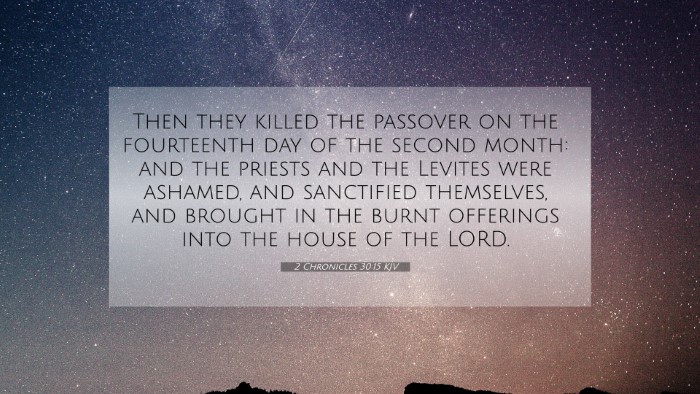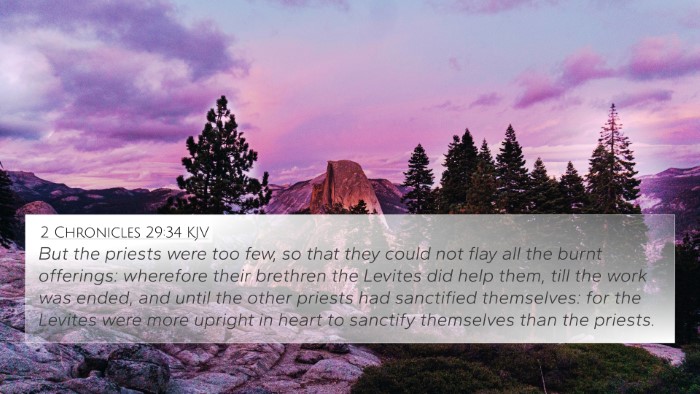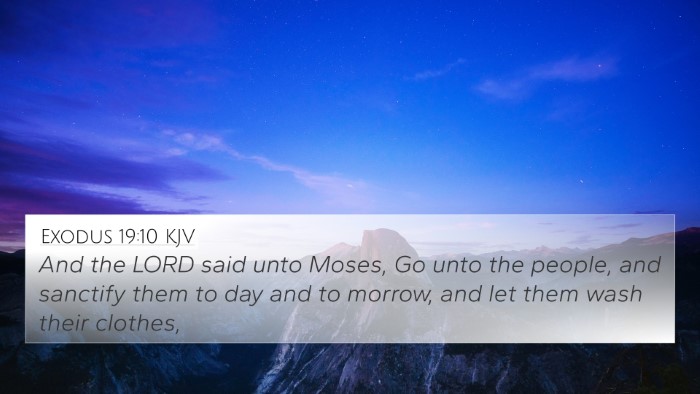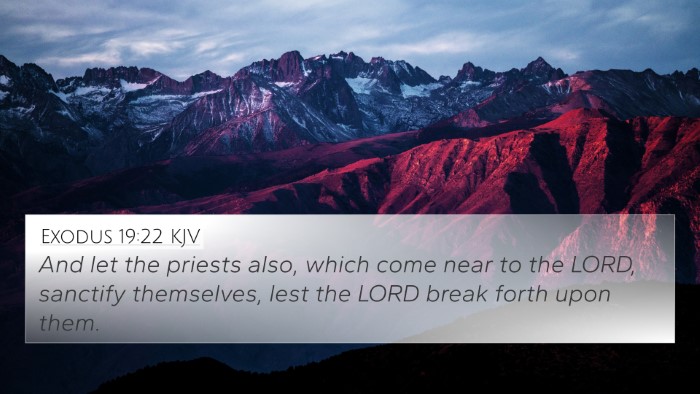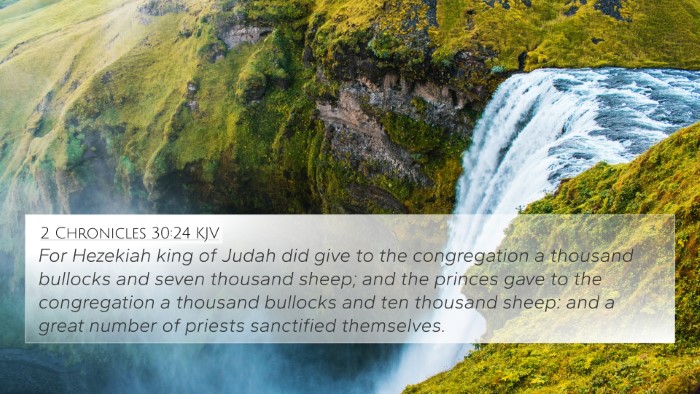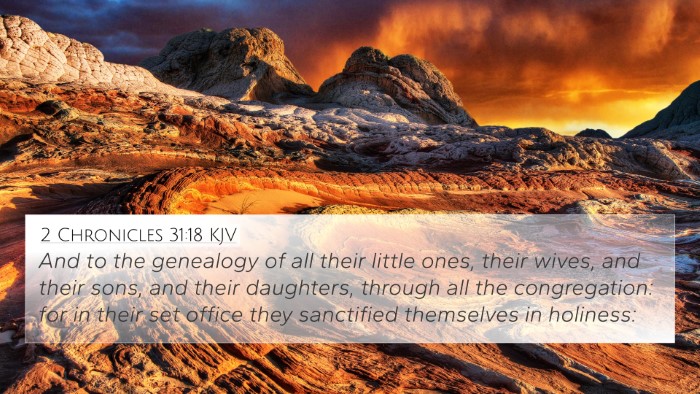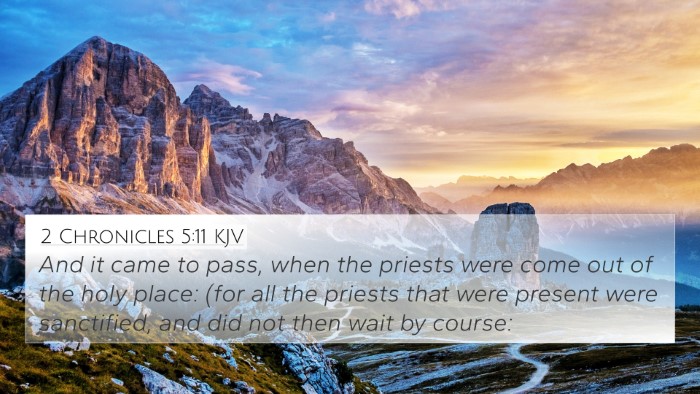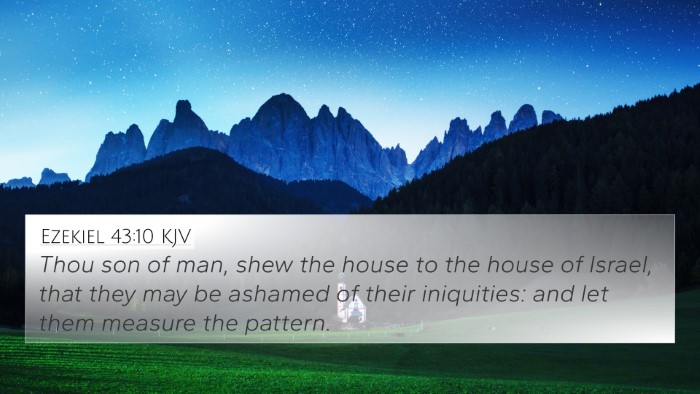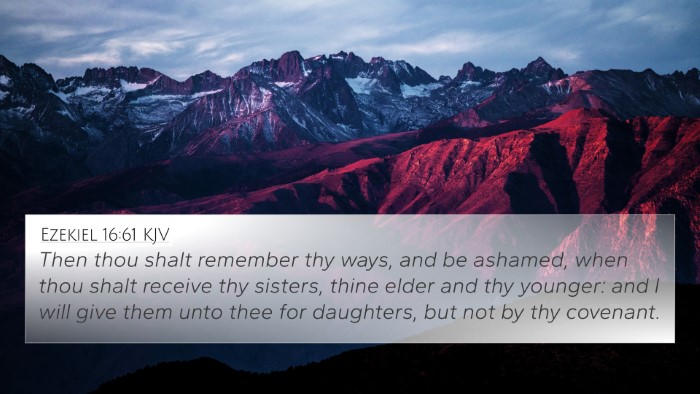Understanding 2 Chronicles 30:15
Verse: "Then they killed the Passover lambs on the fourteenth day of the second month. And the priests and the Levites were ashamed, and sanctified themselves, and brought in the burnt offerings unto the house of the LORD." (2 Chronicles 30:15)
Summary of Meaning
This verse captures a significant moment during King Hezekiah's efforts to restore true worship in Judah. The celebration of Passover, observed traditionally in the first month, was delayed due to the priests and people being unprepared. This signifies a turning back to God amidst a history of neglect and spiritual lethargy.
Commentary Insights
Matthew Henry Commentary
Matthew Henry emphasizes the shame and heartfelt contrition felt by the priests and Levites. Such feelings led them to sanctify themselves and fulfill their duties in offering sacrifices at the Temple. This act of purification is crucial as it reflects the necessity for holiness when approaching God, especially when reviving the spiritual practices of the nation.
Albert Barnes Commentary
Albert Barnes notes the significance of the timing of the Passover. The religious reforms initiated by Hezekiah included a desire to bring all Israel back to the worship of God. Barnes suggests that the preparation for Passover is a symbolic act of redemption and renewal, reflecting the broader narrative of Israel's turning back to their covenant responsibilities.
Adam Clarke Commentary
Adam Clarke highlights the dual themes of repentance and restoration in this verse. He points out that the priests’ shame indicates a recognition of past failures but also illustrates a hopeful dedication to restore their covenant with God. Clarke further discusses the communal aspect of Passover, where individuals collectively partake in the act of remembrance and gratitude towards God’s deliverance.
Thematic Connections
This verse serves as a pivotal moment for understanding various themes within the Bible. Here are essential connections and parallel scriptures relevant to 2 Chronicles 30:15:
- Exodus 12:6-7: The initial institution of the Passover, showcasing the foundational importance of this feast.
- 2 Kings 23:21-23: King Josiah's Passover celebration, illustrating previous attempts at restoring proper worship.
- Psalms 51:17: The theme of a broken spirit aligns with the shame the priests felt, indicating a heart positioned for repentance.
- Isaiah 1:16-17: The call to wash and cleanse reflects the priests' actions to sanctify themselves before ministering.
- Hebrews 10:22: The New Testament call for believers to draw near with genuine hearts relates to the sanctification seen here.
- 2 Chronicles 30:20: The immediate aftermath of their actions, where the LORD hears their prayers, emphasizing God’s readiness to forgive.
- Luke 22:15: Jesus’ Last Supper connects with the Passover, enriching the understanding of sacrificial themes.
- Acts 2:46: Early Christian gatherings for breaking of bread show continuity in community worship practices originating from such feasts.
Cross-Referencing Biblical Texts
Cross-referencing adds depth to the understanding of biblical narratives and their interconnections. Some tools for cross-referencing offer resources on:
- Bible Concordance: To find related verses based on keywords.
- Bible Cross-Reference Guide: Assists in exploring thematic connections across both testaments.
- Cross-Reference Bible Study: Methods to engage scripture holistically.
- Bible Chain References: Following links between concepts across the Bible.
How to Use Bible Cross-References
Utilizing Bible cross-references can illuminate connections and deepen one's biblical understanding. These can include:
- Identifying connections between Old and New Testament themes, such as feasts and sacrificial practices.
- Analyzing parallels in narratives, such as the experiences of leaders striving for reform and restoration.
- Discovering how various books of the Bible address similar issues both historically and theologically.
- Gleaning insights regarding God’s continued invitation for renewal and repentance.
Conclusion
2 Chronicles 30:15 encapsulates a profound moment of national restoration and religious revival. By understanding its context and using effective cross-referencing, one can appreciate the continuity of themes throughout scripture. This verse is an example of how past practices inform present faith, inviting a deeper engagement with God through remembrance and repentance.
